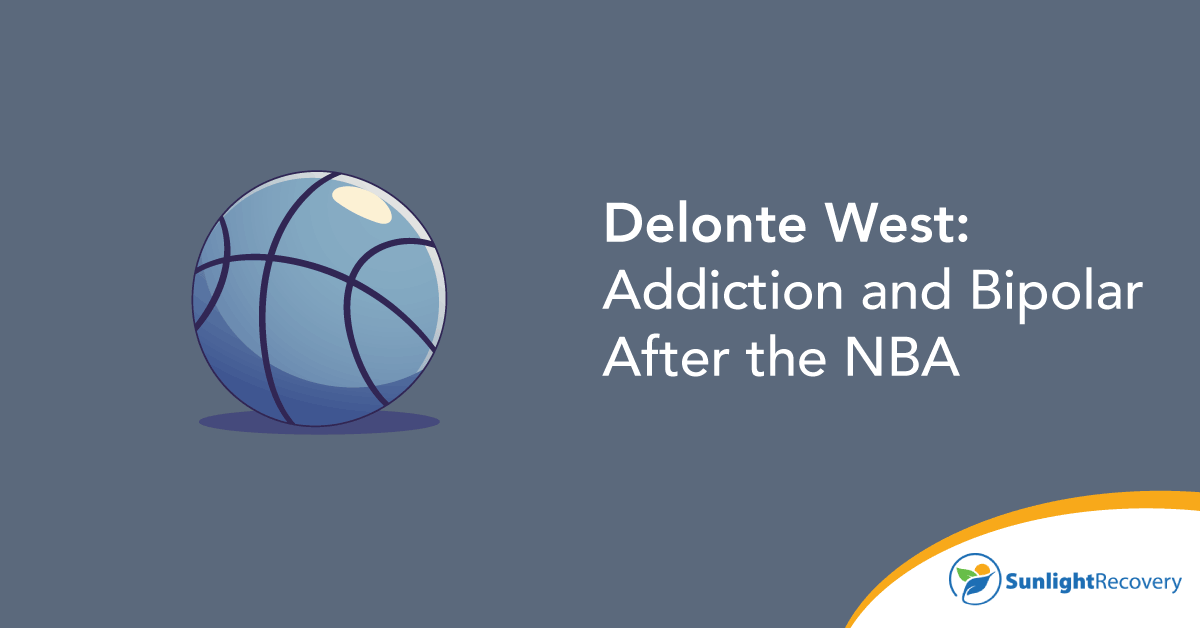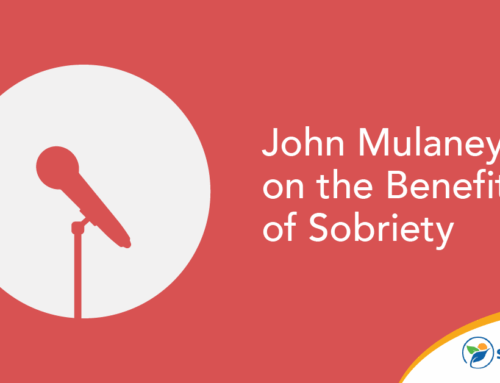Not often do we see an NBA player end up homeless and on drugs. Sadly, that’s the exact tale of NBA superstar Delonte West. Despite a successful career, West has faced hard times in his post-NBA life due to a long history of addiction and untreated mental health issues.
Delonte West’s Rise to NBA Fame
Delonte’s success with basketball started in high school. The athlete attended Eleanor Roosevelt High School in Maryland, where he led his team to their first state tournament appearance.
After high school, West attended Saint Joseph’s University. There, he gained national recognition as one of the best backcourts in the country.
Shortly after his junior year, he left Saint Joseph’s after the Boston Celtics selected him as the 24th pick in the 2004 NBA draft. West’s career would take him to many other teams, including the Seattle Supersonics, the Cleveland Cavaliers, the Dallas Mavericks, the Texas Legends, the Fujian Xunxing, and the Shanghai Sharks.
NBA Player Homeless and On Drugs: A Look at West’s Downfall
West played eight NBA seasons and earned over $16 million throughout his professional basketball career. So, how does a long, successful basketball career end with Delonte West on drugs?
It all starts with a rough childhood. Being of mixed race, West’s his light skin and red hair made him a target for bullying throughout his early childhood years. He once shared during an interview, “I used to try to kill myself all the time.”
While he describes his childhood as, “happy-poor,” he also acknowledges there was a lot of turbulence. He used basketball as an escape from the hardships in his life. Once, in eighth grade, he suffered an injury that stopped him from playing and his mother sent him to live with his father in Louisa County, VA. West says this was his first experience where he, “kind of spiraled downhill.”
The athlete says that during this time, he began self-harming and developed an abusive habit with prescription pills. These behaviors led to him being constantly checked in and out of children’s hospitals. But his problems didn’t stop. He recalls being emotionally unstable with any small hiccup (being unable to pay for an upcoming basketball trip with his team, not seeing his father enough, not getting the latest sneakers) sending him into impulsive, reckless behaviors.
He shares, “I mean, I was basically crying for attention. Man, I tried to kill myself.”
West recalls one night when he was sure he was going to commit suicide. “I’d made up my mind; I was really going to do it this time. Tonight was my night — I was dead serious — I was going to kill myself tonight, by any means, in my room.” Instead, he decided to pray and promised God that if he played professional basketball, he would forever be grateful.
And from there, things turned around for a while.
However, in 2008, during a preseason game, West had an explosive argument with an official during a game. He realized he needed a break and took two weeks off from the Cavaliers. Delonte began counseling, started taking medication, and was also diagnosed with bipolar disorder.
“I am bipolar — just like the rest of us in the world. So bipolar is defined as something sad happens — you’re sad. Something happy happens — you’re happy. I think pretty much everyone in the world is like that. Now there’s different levels. How long do you stay sad? How does it affect your behavior? How do you handle these emotions?”
West is correct in that he’s not alone in his bipolar diagnosis. It’s estimated that 5.7 million American adults have bipolar disorder.
Sadly, circumstances didn’t seem to improve for West from there. In September 2019, he was pulled over for a driving violation and arrested for carrying three loaded guns.
He also seemed to burn through his NBA money. During the NBA’s famous 2011 lockout, West briefly worked at a furniture store to supplement his income.
Despite seeming to get his life back on track in 2015, things continued to spiral downward for West. In 2016, Delonte was photographed homeless and begging for money in Maryland and once again, in 2020, photos of him panhandling were shared online. The owner of the Mavericks, Mark Cuban, picked up West and paid for his drug rehabilitation treatment. By January 2021, it was reported that Delonte had a job at the rehab facility and was doing well.
Unfortunately, in July 2022, West was again seen begging on the streets and would be arrested later that year on misdemeanor charges. In 2024, Delonte West was found unresponsive by police from a drug overdose; miraculously, he survived.
Failing Those Who Need Help
West’s struggles with his mental health were evident throughout his NBA career. For example, American sports analyst Bill Simmons named West one of “The 20 Craziest Players in the NBA.”
West simply never received the support, intervention, and help he desperately needed at the height of his fame. Now that his life has taken an unfortunate turn, some recognize the failures of everyone involved.
Former NBA player Royce White said, “Sad to hear the news about Delonte West. We failed him. We should be talking about mental health honestly all the time, not just when celebrities are in crisis. Let’s not caricature the mental health topic through Delonte’s struggles… Check your own coffee mug first.”
Recovery Is Possible
Bipolar disorder does not have to be a life-shattering diagnosis. West shared that learning about his condition answered many questions for him. “It’s been haunting me my whole life, self-destructive behavior…”, he said.
But the key is to seek and continue with treatment. Bipolar disorder and other mental health conditions can be incredibly damaging and disruptive when not properly treated, yet many people, including celebrities with the same condition — such as Selena Gomez and Mariah Carey — live functioning, happy lives because they seek the counseling and medication they need.
Delonte West’s life would likely have been very different had he gotten the help he needed early on. However, his life is not over, and there is still hope that West will find the professional help he needs to get back on track.
Mental Health Treatment at Sunlight Recovery
If you are struggling with your mental health, know that you don’t have to go through this journey alone. The right support system can make the difference between a difficult situation and a smooth, long-term recovery. At Sunlight Recovery, our experienced mental health professionals are trained and ready to help you or a loved one receive treatment for any mental health condition.
Contact us today to take the first step to recovery.







